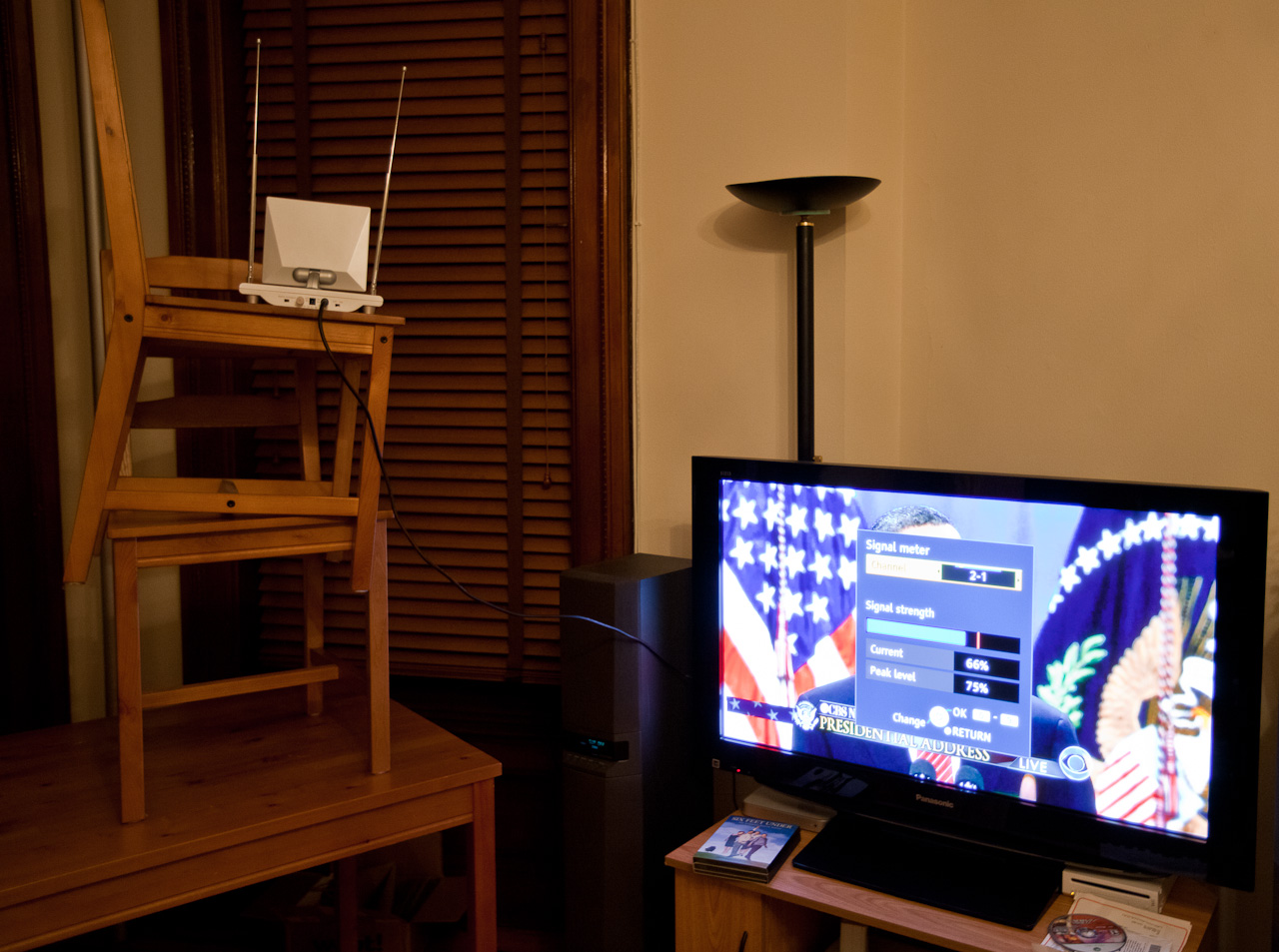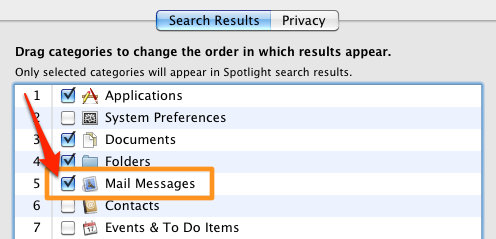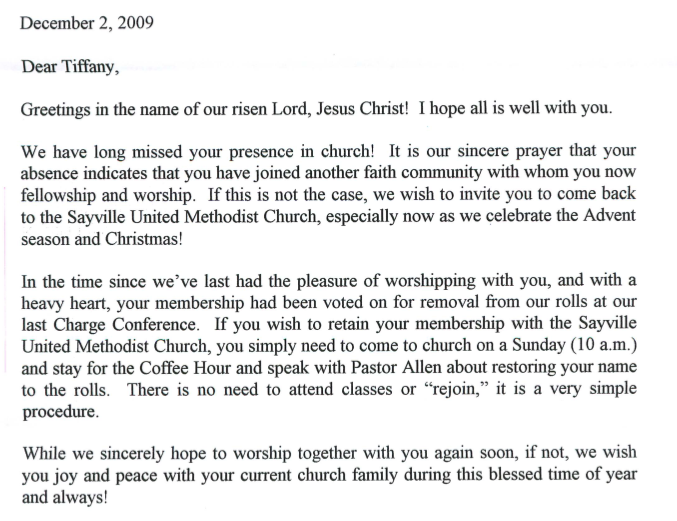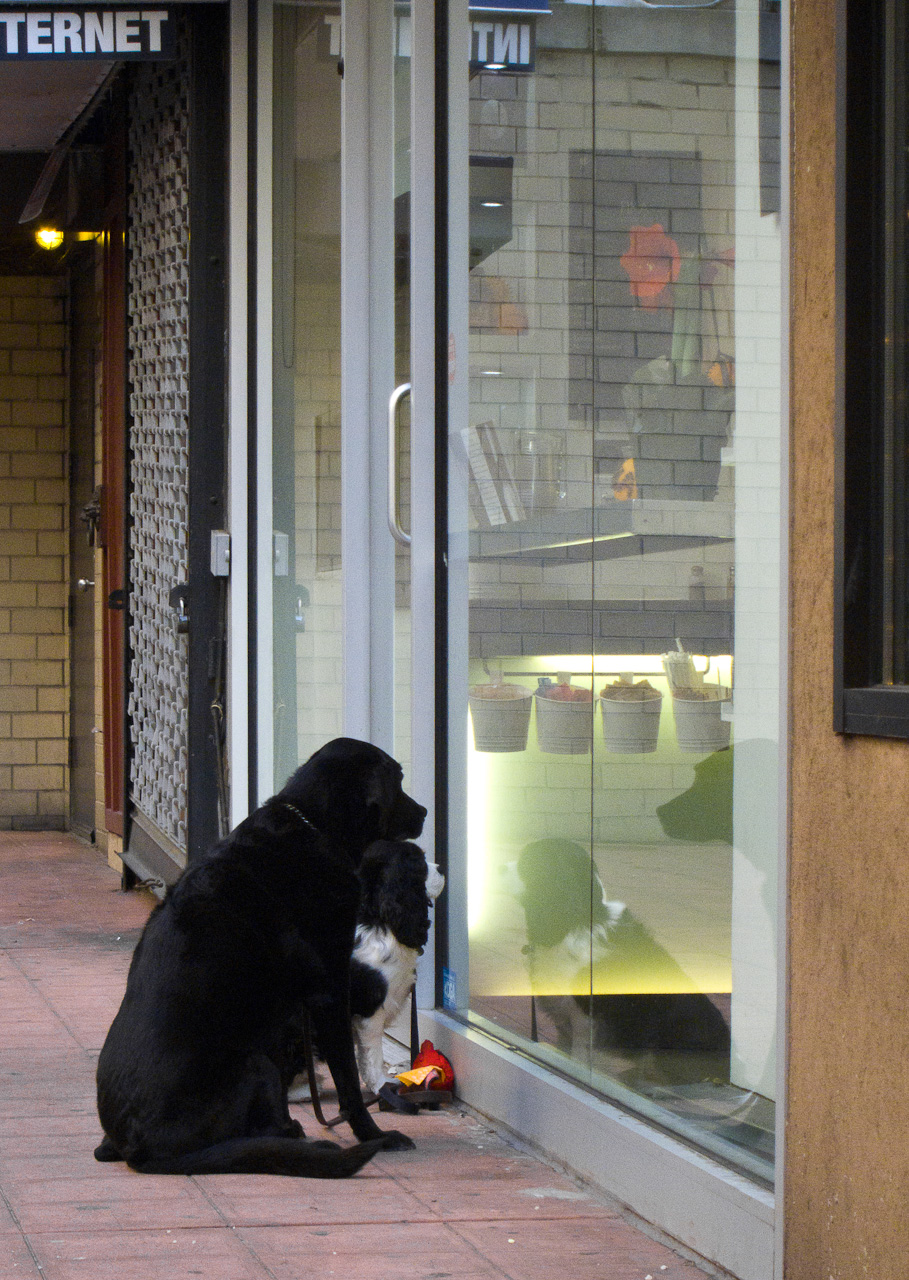https://marco.org/2009/12/01/its-2009-and-i-just-aimed-a-tv-antenna-this-is

It’s 2009 and I just aimed a TV antenna.
This is the only position that gives a useful level of reception.
I’m Marco Arment: a programmer, writer, podcaster, geek, and coffee enthusiast.
https://marco.org/2009/12/01/its-2009-and-i-just-aimed-a-tv-antenna-this-is

It’s 2009 and I just aimed a TV antenna.
This is the only position that gives a useful level of reception.

https://marco.org/2009/12/02/simple-budget-question-should-we-now-believe-that
Simple budget question: Should we now believe that escalating the Afghanistan War at the same annual cost of universal health care will save more than 45,000 Americans a year (i.e. the number of Americans who die every year for lack of health insurance)?
— David Sirota: Some Simple Questions After Obama’s Afghanistan War Speech (the whole list is good)
https://marco.org/2009/12/02/im-proud-to-say-that-i-live-in-new-york-i-love
I’m proud to say that I live in New York. I love it here, and wouldn’t want to live anywhere else.
But that’s despite the state government, not because of it. The New York state government has always been dysfunctional and ineffective. This is tragic, but unsurprising. I don’t think anyone familiar with the New York legislature expected it to pass.
https://marco.org/2009/12/03/one-of-the-niceties-of-lightroom-3-and-maybe

One of the niceties of Lightroom 3 (and maybe older versions, I don’t know): a Dock-icon progress bar to indicate the progress of long import/export operations and an optional sound alert (ding!) when they’re done.
After using the Lightroom 3 beta for a few weeks, I’m sold. It’s much faster, more stable (even in beta), more polished, and more robust than Aperture. Apple should consider its ass thoroughly kicked on this one.
https://marco.org/2009/12/03/keep-this-checked-my-entire-message-search

Keep this checked.
My “Entire Message” search in Mail.app hasn’t worked for a long time, always just inexplicably returning zero results for any search. Today it was finally causing enough of an inconvenience that I searched for a fix.
I learned that for “Entire Message” searches, Mail just uses Spotlight on the message files. So if you leave this box unchecked* in Spotlight’s preferences, “Entire Message” searches simply won’t work, and neither Mail nor Spotlight felt it necessary to tell me this. (You also need to ensure that ~/Library/Mail isn’t excluded from settings in that Privacy tab.)
I was impatient, so after fixing that setting, I told Spotlight to manually import the messages immediately:
mdimport ~/Library/Mail
As soon as that completed, “Entire Message” searches started working.
* I had unchecked it because mail messages always cluttered up the results when I was simply trying to launch an app or find a document.
https://marco.org/2009/12/04/jared-was-right-this-was-awesome

https://marco.org/2009/12/04/as-wendell-berry-has-tartly-observed-to-take
As Wendell Berry has tartly observed, to take animals off farms and put them on feedlots is to take an elegant solution—animals replenishing the fertility that crops deplete—and neatly divide it into two problems: a fertility problem on the farm and a pollution problem on the feedlot. The former problem is remedied with fossil-fuel fertilizer; the latter is remedied not at all.
https://marco.org/2009/12/04/i-read-a-blog-once-by-someone-who-had-bought-a
I read a blog once by someone who had bought a scarf and he went on for about three hundred paragraphs about his scarf and where he bought it and how it made him feel. The last time I bought a scarf I wore it. End of story. I didn’t write a novel about it.
https://marco.org/2009/12/05/embezzle-a-bit-more-of-your-buildings

Embezzle a bit more of your building’s heat.
Here’s a useful trick to unfairly get more heat into your apartment than the others in your building: Use a box fan to convert your passive radiator — in effect, a giant heatsink — into an active heatsink-with-fan combo.
As most computer-assembling geeks know, a passive heatsink transfers heat from its source to the air very slowly. Even adding a small amount of direct airflow significantly increases the rate at which heat is transferred into the air.
Aim a box fan through your radiator when it’s actively heating (not just sitting there, freezing, as they tend to do for hours), and the room will very quickly fill with heat.
Q: A fan? It’s cold in here! Won’t that make it colder?
No. Moving the air doesn’t make it colder. Blowing the air over the radiator can only result in an air temperature between what it already was (the room’s air temperature) and the temperature of the surface of the radiator. (So if your radiator has been off for a while and is colder than the air in the room, leave the fan off. When the radiator is warmer than the air, turn the fan on.)
Q: Can anything go wrong?
Probably. Please don’t sue me if your fan blade flies off during operation and bisects your cat. I’ve never seen it happen, but I know from my experience diagnosing computer problems that “I’ve never seen that before” isn’t a guarantee that something won’t happen. One common risk is that there’s probably a lot of dust under, in, and behind your radiator. Vacuum it before attempting this maneuver, and start with a low fan speed the first time in case a lot of dust flies out that you weren’t expecting.
Q: Why does it work?
All you’re doing is increasing the amount of heat that gets transferred from the radiator to the air in your apartment. You’re cooling the steam a bit more than usual before it enters the next apartment on the pipeline. In effect, you’re embezzling heat from everyone else in your building, but in an amount that’s miniscule when averaged over everyone else. Like in Office Space. (And if your heat is thermostat-controlled, like most tend to be, you’re probably just causing the heat to stay on slightly longer rather than making anyone else colder.)
It’s up to you whether you’re OK with that. But when most of your neighbors are out of town for the weekend and you’re in an old brownstone with “conservative” heat and very drafty windows that you’ve already foamed and plasticked but still manage to let freezing air (and even the occasional insect) through, you may be inclined to take whatever advantages you can get.
https://marco.org/2009/12/06/for-every-100-copies-of-a-physical-book-we-sell
For every 100 copies of a physical book we sell, where we have the Kindle edition, we will sell 48 copies of the Kindle edition. It won’t be too long before we’re selling more electronic books than we are physical books.
https://marco.org/2009/12/06/america-is-now-a-one-party-state-the-one-party-is
America is now a one-party state. The one party is the Establishment party, which is also the war party.
https://marco.org/2009/12/06/phish-fluffhead-2009-12-03-at-madison-square
Phish — Fluffhead, 2009/12/03 at Madison Square Garden (buy)
This was my favorite performance from the show I attended last week. The last three minutes, in particular, are excellent.
One of the interesting benefits of being a Phish fan is that you can download official, legal, high-quality*, DRM-free soundboard recordings of nearly every show they perform from here for reasonable prices — and they’re typically available within a few hours of the end of the show.
I was able to download this concert by the time I got home from attending it.**
The band probably makes a decent amount of money from these sales. The rest of the music industry should take notice: this is a great idea. (…for bands whose concerts actually sound different from the albums and each other.)
* I transcoded this MP3 down to 92 kbps ABR to be a more reasonable size for streaming. The actual sound quality is better. They even offer FLAC and 24/48 FLAC-HD for a bit more money if you’re into that sort of thing.
** But I waited until I could buy all three nights — that’s 66 songs, over 8 hours — for $27, about an hour after the third night’s performance ended. I’m lucky to get one 45-minute album every two years from most other bands that I like. It’s good to be a Phish fan.
https://marco.org/2009/12/06/left-dell-2407wfp-hc-right-2408wfp-tip-if

Left: Dell 2407WFP-HC. Right: 2408WFP.
Tip: If you’re going dual-monitor, get two identical models.
It’s nearly impossible to get these to look similar, even though the 2408 is just one generation ahead of the 2407 HC. I was only able to get them to this point with the help of Tiff’s new calibrator and a lot of manual settings tweaks, but both are still nowhere near accurate or balanced.
The 2408 isn’t actually very good. It has embarrassing input lag (my 2407 HC doesn’t), the backlight is too eye-burning bright at nearly every setting above “0”, and the color reproduction is worse than the 2407 HC.
But the 2407 isn’t perfect, either: its USB hub is unreliable, and its power button has an annoying habit of rotating out of position and failing after less than a year. Mine does this, and frequently needs a good 30 seconds of prodding to turn on, but the process of cross-shipping it from a Brooklyn apartment with no car and awful UPS/FedEx drivers is so prohibitive that I’m waiting until it becomes so bad that I can’t turn it on at all before sending it for repair. It’s pretty sad that Dell can’t make a power button that lasts more than a year of being pushed twice per day on a $400+ product.
The Tumblr office recently got a pair of the new model in this line, the U2410. They’re not mine, so I can’t tell you how good they are, but they’re garishly decorated with bright blue LEDs that would be nearly impossible to tolerate in anything but a brightly lit office.
All of this has made me realize that Dell’s monitors aren’t as good as they used to be. The standard good-value practice for the last few years has been to buy computers from Apple but everything else — monitors, keyboards, RAM, hard drives — from third parties. Dell was always the first choice for monitors, offering top-quality panels with great connectivity and convenience features (USB hubs, card readers) for much less money than nearly anyone else, especially Apple. But I think I’ve bought my last Dell monitor.
If Apple puts LG’s magical 27” panel into a standalone monitor for a reasonable price ($1200?), it will be difficult for many people to resist. And if anyone else with any semblance of quality and design offers it in matte, I might dump one of these Dells on Craigslist, give up any hope of color-matching between my pair, and replace the primary (left) screen with something that doesn’t look, feel, and work as well as a GM car.
https://marco.org/2009/12/07/formed-in-los-angeles-in-1992-weezer-had-a
Formed in Los Angeles in 1992, Weezer had a handful of hits two years later with the songs ‘Undone — The Sweater Song,’ ‘Buddy Holly’ and ‘Say It Ain’t So.’
— Rivers Cuomo “suffered minor injuries” in bus skid.
They probably pulled this paragraph out of their obituary drafts. This will be Rivers’ obituary someday.
This is the best they can say about Weezer. And I can’t say I blame them. I may have mentioned something from Pinkerton, but most people have never heard of it.
Considering how many albums Weezer has released after the blue album, this is pretty sad.
https://marco.org/2009/12/07/steve-jobs-is-a-design-dictator-of-the-company
[Steve Jobs] is a design dictator of the company. And it’s fortunate for Apple and the world in general that they have him, because without his iron hand, the company would soon devolve back into a political, consensus-driven company. It would still have great products from a certain point of view, but I doubt that they would ever have the game-changing superiority they exhibit now. Committees would grow, politics would ensue, control battles would happen, and superior products would be hampered by all of this. Steve removes all of that; he makes the final decision and pushes details that no one else would have the authority to push. And being at the top, you have to listen to him or else you’re fired. That’s it; end of story.
— David Shen, who hopefully won’t mind that I’ve edited this a bit for punctuation and capitalization.
https://marco.org/2009/12/07/crunchpad-manufacturer-renames-product-joojoo-promises
I… hmm. Let’s see. I’ve written about that whole “no operating system” technicality before, so I’ll leave that alone for now. But… how should I put this? I should be nice. The Fusion Garage guy seems like a nice guy.
I have absolutely no idea how they’re going to convince anyone beyond a handful of hardcore geeks to buy this.
It looks like they’ve taken the idea and executed fairly well on it, although it’s too early to really know. But that doesn’t really matter.
This type of product has been tried before, and it has never succeeded. I disagree with Fusion Garage’s premise that this fills the gap between an iPhone and a “full” computer. Yeah, it could serve that role, but small, inexpensive laptops (and yes, even netbooks) fill it a lot better, often for a lot less money.
Assuming this is necessary is a Bill Gates fallacy: assuming that the general public has the same demands and priorities as geeks like us.
Most people are happy to have one computer and one phone. The computer is likely to be a laptop, and that laptop is likely to be inexpensive and in the 13-inch size class. There’s no room in this picture for another $500 device that won’t fit in anyone’s pocket or purse and won’t provide any functionality that the laptop doesn’t.
It’s the same problem netbooks have, but the JooJoo does even less, for more money.
https://marco.org/2009/12/07/normal-people-do-have-one-thing-figured-out-that
Normal people do have one thing figured out that we geeks don’t: sometimes, it’s okay to not have a computer around.
— nrbd
https://marco.org/2009/12/07/recent-experiments-that-havent-worked-out-and-need-or
Win some, lose some.
https://marco.org/2009/12/07/tiff-i-got-this-letter-today-ive-been-voted

Tiff: “I got this letter today. I’ve been voted out of church because I haven’t attended in 8 years. Merry Christmas to all!”
https://marco.org/2009/12/09/after-2-weeks-in-the-store-i-had-a-very-bipolar
After 2 weeks in the store, I had a very bipolar weekend. First, I wrote an epic bitter rant of a blog post about how badly everything I ever did turned out, then I baked a cake. At heart, I’m a positive person, so the rant stayed private and I posted the cake on our blog instead.
— One Year in the App Store. I should try that next time I get upset about the App Store.
https://marco.org/2009/12/09/if-as-reported-the-democrats-have-dropped-the
If, as reported, the Democrats have dropped the public option, they have abandoned any attempt to improve the health care in the United States in favor of increasing health-care insurance profits. This is good for the economy, as ever more jobs will be created in medical claims processing. Also, delivering 40 million new (taxpayer subsidized) premium-payers to the insurance companies to pretend to cover the currently uninsured will certainly drive up health insurance stocks. But nothing in the bill will actually improve heath care nor lower the cost of what passes for healthcare in the US. The war is over, the people lost.
— Some Assembly Required (via azspot)
https://marco.org/2009/12/09/barnes-and-nobles-nook-reader-fails-to-live-up-to
David Pogue’s review:
Every one of the Nook’s vaunted distinctions comes fraught with buzz kill footnotes.
Later:
Now, the Nook may have some hardware advantages — a removable battery, a memory-card slot and (because of narrower plastic margins) a slightly trimmer shape — but the Kindle is still a better machine. It’s faster, thinner, lighter and much easier to figure out.
I’m disappointed that the Nook isn’t better, even though I’m a Kindle owner (and fan). Competition is always good, and it looks like the Nook was horribly rushed to market as a sloppy, unfinished product.
Some of the software flaws are likely to be corrected quickly. But one particular performance flaw is a big problem in an ebook reader:
…the Nook’s screen is achingly slower than the Kindle’s. It takes nearly three seconds to turn a page — three times longer than the Kindle — which is really disruptive if you’re in midsentence.
I can’t stress enough how big of a problem this is. The Kindle 2 — the fastest ebook page-turner available, as far as I know — turns pages just quickly enough not to be annoying or distracting.
Even if the Nook becomes twice as fast in a future software update, that’s still too slow.
B&N reps occasionally let out candid remarks blaming the awful performance on the underlying Android OS and claiming that Google is going to make it faster Real Soon Now™.
By reading between the lines a bit, it’s obvious that very little time was allotted to get the software side of this done, and they scrambled to scrap together whatever they possibly could and rush it out the door for the holiday season. That made for a sloppy, botched launch, but there’s a bigger, long-term problem: the Nook’s software team is probably insufficiently staffed, and has insufficient experience with (and control over) the Android platform, to deal with these sorts of problems quickly — if at all.
Meanwhile, the Kindle was a carefully planned and executed product from day one. It’s handled by a very competent developer team and built against a highly optimized Linux distribution that Amazon has custom-patched a lot at low levels to be better and faster on the Kindle hardware. It has received two years of improvements, bug fixes, and optimizations. The Kindle 2 isn’t “fast”, but it seems limited in most operations by the refresh speed of the e-ink screen rather than the device’s hardware or software.
But most importantly, the Kindle software is incredibly polished. There’s plenty of room for improvement, but mostly in additional functionality — the functionality that’s there is rock-solid. It’s well thought out, it’s as fast as the screen will let it be, and it works every time.
Reading about Pogue’s many issues with the Nook, as a Kindle owner, evokes the same amazement and sadness I feel as a Mac user when hearing about other people’s Windows woes.
I want the Nook to do well — not because I want one, but because I want it to ignite Amazon’s competitive spirit to keep dropping prices and improving the Kindle. (It’s the same reason I want a good iPhone competitor to exist.)
Hopefully the Nook will provide that competition someday, but that’s apparently not happening yet.
I compiled these stats from Tumblr photo uploads. The biggest surprise, for me, was how poorly Palm’s webOS devices (the Pre and Pixi) are doing relative to Android devices.
Minor Marco.org exclusive info: among the Android devices in this sample, the G1 is by far the most popular, but the Droid has already reached 20% of the G1’s volume. Additionally, the Droid is nearly 4 times as popular as the Pre.
https://marco.org/2009/12/10/the-tumblr-backup-app-is-ready-for-its-first-beta

The Tumblr Backup app is ready for its first beta testing.
Unlike other publishing sites’ approach to backups, our goal was to create a useful copy of your blog’s content that can be viewed on any computer, burned to a CD, or hosted as an archive of static HTML files.
Wherever possible, we use simple file formats. Our backup structure is optimized for Mac OS X’s Spotlight for searching and Quick Look for browsing, and we’ll try to use the same structure and achieve the same benefits on other platforms.
Release notes:
index.html file.private folder, and their images or audio files are included in the standard images and audio folders.To report bugs, email me. Thanks.
https://marco.org/2009/12/10/minor-update-to-the-tumblr-backup-app-fixed
Minor update to the Tumblr Backup app:
Redownload. Thanks.
https://marco.org/2009/12/11/when-tumblr-first-came-out-i-started-an-account
When Tumblr first came out I started an account and posted little things on the side but didn’t link to it anywhere. After a month or two I realized I had posted loads of content there and nothing to my primary site. So it seemed logical to switch.
— Garrett Murray, interviewed by Chris Bowler. This is why I switched completely to Tumblr, too, despite having run my own homebrew CMS for years prior.
https://marco.org/2009/12/12/app-stores-charge-money-for-mobile-apps-and
App stores charge money for mobile ‘apps’ and nobody flinches because they’re not viewed as part of the Web. Desktop software enjoys the same general perception.
https://marco.org/2009/12/14/not-bad-for-the-little-guy-especially-considering

Not bad for the little guy, especially considering that shooting the sun directly through tree branches is one of the most unforgiving subjects for revealing optical flaws in anything but high-end pro glass.
https://marco.org/2009/12/14/for-street-cleaning-every-side-of-every-block-in

For street cleaning, every side of every block in most of Brooklyn becomes a no-parking zone for about two hours each week. (This is one of the reasons why having a car in Brooklyn sucks: you need to leave your parking spot and find a new one, which is nearly impossible, at least twice a week. Or pay $340/month for a garage, which doesn’t reduce the $250/month insurance.)
Park Slope uniformly performs this crazy maneuver during street cleaning: nearly every car double-parks against the other side of the street, forming a solid, perfect second row of cars.
Nobody gets ticketed. There’s some sort of understanding between the residents and the police that apparently exempts this double-parking from being a ticketed offense.
Street cleaning is usually done from 9:something to 10:something in the morning, after which everyone gets back into their double-parked cars and switches back to the freshly cleaned side of the street.
I’m curious how the system works:
Nobody told us these things when we moved here. They just gave us a refrigerator magnet about recycling.
https://marco.org/2009/12/14/the-minimum-bar-for-a-reliable-service-is-not-that
The minimum bar for a reliable service is not that you have done a backup, but that you have done a restore.
— Joel Spolsky (via Casey Liss)
https://marco.org/2009/12/14/dems-may-drop-medicare-expansion
Via Dan:
Wait. So you exchange a public option for a Medicare expansion then you drop the Medicare expansion?
Of course.
Democrats (in power): We want to pass this bill that makes a lot of sense. It would help a lot of people and it’s supported by the majority of the population.
Republicans: No. You need to compromise.
Democrats: OK. Well, I guess we can do without this huge part over here. How about now?
Republicans: No. You need to compromise.
Democrats: Fine, we’ll kill this section, even though it’s pretty much the point. Now?
Republicans: No. You need to compromise.
Democrats: OK. Sorry. We’ll take out the last part. I’m not even sure if I know what’s left. How about now?
Republicans: No. You need to compromise.
It’s business as usual for the inept, incompetent, ever-bending-over Democratic Party.
https://marco.org/2009/12/14/if-anything-im-just-embarrassed-i-didnt-see
If anything, I’m just embarrassed I didn’t see this coming. I’m embarrassed I let Obama’s rhetoric of ‘hope’ lead me to believe the American left had actually grown a pair.
https://marco.org/2009/12/15/the-sensei-the-master-teacher-was-not-charging
The sensei (the master teacher) was not charging the group for the training. The students, feeling that this was unfair, approached the master one day and suggested that they pay him for his time and effort. Setting down his bamboo shinai, the master calmly replied that if he charged them, they would not be able to afford him.
https://marco.org/2009/12/15/theres-too-much-attention-to-children-in-this
There’s TOO MUCH ATTENTION TO CHILDREN in this country! Leave them ALONE! They’re gonna BE ALL RIGHT! They’re SMARTER THAN YOU ARE!
https://marco.org/2009/12/16/in-practice-nothing-works-there-are-all-these
In practice, nothing works. There are all these beautiful abstractions that are backed by shit. The implementation of libraries that look like they could be beautiful are shit. And so if you’re the one responsible for the cost of buying servers, or reliability-if you’re on call for pages-it helps to actually know what’s going on under the covers and not trust everyone else’s libraries, and code, and interfaces.
https://marco.org/2009/12/16/i-used-to-get-angry-at-blue-collar-right-wingers
I used to get angry at blue-collar right-wingers, but that passed, because I saw that in the end they were just a different sort of victim.
https://marco.org/2009/12/16/despite-the-fact-that-gods-heart-for-the-poor-is
Despite the fact that God’s heart for the poor is mentioned in some 2,100 verses of Scripture, many of us simply miss it. In a recent survey of adults in America conducted by Harris Interactive, although 80 percent of adults claimed to be familiar with the Bible — the best-selling book in history — 46 percent think the Bible offers the most teachings on heaven, hell, adultery, pride or jealousy. In fact, there are more teachings on poverty than on any of those topics.
— Christians losing their way (via azspot)
https://marco.org/2009/12/16/sometimes-its-nice-to-take-a-break-from-the-tech
Sometimes, it’s nice to take a break from the tech news world’s perpetual idiocy, stay far away from posting anything that might accidentally get me on the great wasteland of Hacker News, and just blog a bunch of George Carlin’s autobiography quotes from my Kindle clippings. (Seriously. I have 7 more saved as drafts so I wouldn’t overwhelm my blog with all of them at once.)
Over the last few years, I have unsubscribed from nearly every tech-news feed. I have never regretted the decision afterward, and I haven’t missed anything important.
Tech news needs help. Badly. It’s truly terrible.
My feelings toward the people who work in tech journalism are split. I respect them for doing that job, since it looks like it sucks: the pressures are relentless, the work is repetitive, and the audience is ruthless, thankless, callous, and fickle. But I can’t accept that this is the best we can do.
https://marco.org/2009/12/16/most-serious-news-stories-are-peppered-with
Most serious news stories are peppered with information that is laughably false, and reporters are always fully aware of how false that information is. Newspapers are constantly quoting people who are openly lying, and almost every sound bite you hear in the broadcast media is partially false. And there’s nothing anyone can do about it. It’s not that the truth is being ignored; it’s just that the truth is inevitably combined with a bunch of crap that’s supposed to make news stories unbiased and credible, but really just makes them longer and less clear. The motivation for doing this is to foster objectivity, but it actually does the complete opposite. It makes finding an objective reality impossible, because you’re always getting facts plus requisite grains of ‘equalizing’ fiction.
https://marco.org/2009/12/16/oh-yeah-about-that-vimeo-thing-putting-big-label
Oh yeah, about that Vimeo thing. Putting big-label music in a video is copyright infringement. It sucks, but that’s the way it is.
It’s hardly Capitol Records’ fault that a bunch of internet people think they should be exempt from the terms that their beloved bands agreed to when they signed with the label, and it’s childish to blame Capitol for trying to enforce them. The bands chose to work with Capitol under these terms. Why not direct this anger toward the bands? Why not demand that they work out a deal with their labels to contractually permit their music to be freely used in the ways that you feel should be free?
YouTube was forced to comply with the legality of musical usage. Vimeo can’t expect a free pass simply because its founders are creative.
Vimeo strictly requires videos to be original, non-infringing content. Why shouldn’t that extend to their soundtracks?
https://marco.org/2009/12/17/what-if-copyright-infringement-were-made
What if copyright infringement were made completely impossible? What if we had perfect enforcement at the technical level? (I know this isn’t possible, but bear with me. It’s a “thought experiment”.)
Music and video sites would instantly and perfectly detect any copyright infringement in uploaded files and refuse to host them. People would be forced to create (or find) content that’s licensed permissively enough, such as under the Creative Commons, to allow their usage. We’d give the big music and video publishers exactly what they think they want. But it would actually demolish them.
It would be the best thing that ever happened to those who speak so strongly against “all rights reserved”-style copyright enforcement.
Today’s demand for permissively licensed content is nearly zero because most people can get away with small-scale infringement. If that were no longer possible, all of these infringements would be replaced by much more demand for permissively licensed content. Any publishers unwilling to satisfy the demand would be left in the dust by those who would.
https://marco.org/2009/12/17/the-noisier-the-culture-becomes-the-stronger-your
The noisier the culture becomes, the stronger your voice has to be to be heard above the din.
https://marco.org/2009/12/17/to-even-call-these-shots-espresso-is-a-stretch
To even call these shots ‘espresso’ is a stretch. These are astringent, bitter, tire-rubber flavored little coffees. This is something you carelessly toss into someone’s drink when the coffee is ‘just another ingredient’. Toss those puppies in the blender and frap it.
— Inspired by Butchery on Starbucks’ espresso preparation methods
https://marco.org/2009/12/17/aaron-swartz-google-gets-a-lot-of-criticism
Google gets a lot of criticism (often deserved), but it’s worth taking a moment to think of all the things they haven’t done. If Microsoft had Google’s market share in search, is there any doubt that they’d be systematically demoting or even banning their competitors in the search results? Demoting someone in Google is a virtual death sentence, and yet not only has Google never been accused of using this vast power, the idea itself is almost unimaginable.
Dave Winer in response:
Microsoft wasn’t as bad as you seem to think. They didn’t interfere with 99 percent of all Windows apps. They certainly never tried to control the platform anywhere as completely as Apple tries to control iPhone apps today. I think it’s very nice of Google not to screw around with search results. I also think if they did, they’d instantly fall apart.
Would they really fall apart? Or is it more likely that they could gradually add more features and policies that do screw around with search results, and it wouldn’t matter because most consumers wouldn’t notice or care and most geeks unconditionally love and defend everything Google does?
https://marco.org/2009/12/17/americans-have-succumbed-to-rampant-consumerism
Americans have succumbed to rampant consumerism. Go back to a home built before we had to have everything, for instance, and check out the size of the closets. Our house in Cambridge, Massachusetts, for example, was built in 1890. It has no closets whatsoever. Houses in the 1940s had closets barely big enough to stand in. The closet of the 1970s was a bit larger, perhaps deep enough for a fondue pot, a box of eight-track tapes, and a few disco dresses. But the closet of today is a different breed. “Walk-in closet” means that you can literally walk in for quite a distance. And no matter how deep these closets are, Americans have found ways to fill them right up to the closet door.
https://marco.org/2009/12/18/thus-the-real-tragedy-of-the-wikipedia-method-is
Thus, the real tragedy of the Wikipedia method is that it reduces intellectual contributions to such granular units that writing a 2000-word entry on Chabrol in one sitting feels like painting the ceiling of the Sistine Chapel.
https://marco.org/2009/12/18/the-larger-the-group-the-more-toxic-the-more-of
The larger the group, the more toxic, the more of your beauty as an individual you have to surrender for the sake of group thought. And when you suspend your individual beauty you also give up a lot of your humanity. You will do things in the name of a group that you would never do on your own. Injuring, hurting, killing, drinking are all part of it, because you’ve lost your identity, because you now owe your allegiance to this thing that’s bigger than you are and that controls you.
My content will be stolen and republished in ways that violate my extremely permissive Creative Commons license. This will be done by both bots and humans. The bots will use my content to steal pennies from advertisers and time from people. Some of the humans won’t realize they’re doing anything wrong. The others think I won’t notice.
People will misquote, re-title, and edit my content to make it more sensational, at the expense of my credibility and their readers’ trust, in an effort to increase pageviews to their own site, like Business Insider, or increase their rank or reputation on someone else’s site, like Hacker News.
People will misread and misunderstand my content, usually because they’re inattentively skimming it for trigger phrases and concepts that confirm or inflame their own biases.
This will incite many of them to leave misguided, poorly written, ad-hominem comments on every site that republishes or links to my content. Most of the commenters will only read the (edited, sensationalized) title before commenting. They’ll insult my intelligence, call me names, tell me I suck, and refute arguments I didn’t make. Many of them will email these comments to me to make sure I see them.
But I still write.
Because amid all of the spam, fraud, and nastiness, people are reading what I write. Some even send positive feedback or valid counterarguments.
But most importantly, I’m freely expressing my ideas in public, which helps me clarify my thoughts, enhance and alter my views, and improve my writing over time.
I think I’m getting the better end of the deal.
https://marco.org/2009/12/18/one-of-new-yorks-winter-oddities-is-the

One of New York’s winter oddities is the experience of buying street fruit in the dark since sunset happens so early in the day.
https://marco.org/2009/12/19/as-is-though-im-left-with-the-nagging-question
As-is, though, I’m left with the nagging question ‘Why did the Nook need to be created?’ Each of the other ebook readers I’ve talked about has a perspective that makes it unique. But every time I think of the Nook, I think of a feature that another device does as well or better, or a feature that’s missing entirely.
— Andy Ihnatko in a good ebook-reader roundup
https://marco.org/2009/12/19/the-worst-thing-you-can-do-to-anybody-trying-to-be
The worst thing you can do to anybody trying to be creative is to demand participation in their vision.
https://marco.org/2009/12/21/charge-for-it-rather-than-plead-with-people-to
Charge for it. Rather than plead with people to support something they love, force them to.
No matter how much people love your product or service, and no matter how good their intentions are about someday getting around to giving you that donation or buying your paid edition, they won’t get around to actually giving you money until you create some sort of pain point.
For software, that can be a time or feature limit. For example, you can try the program and make your great thing in it, but if you want to save it in a form that’s useful outside of the program itself, you have to pay. Or you can use the program for two months to get yourself completely hooked on it, then it’ll stop working unless you buy it. Or you can process ten tasks for free, but to process the eleventh and up, you need a license.
Content has fewer options, but it’s still a great model to use. Give away the first or most recent episode or chapter or article, then sell the rest.
Unfortunately, I’m not sure how well it works for podcasts. I would have expected it to work just as well as it does for other media, but look at what happened to The Ricky Gervais Show.
https://marco.org/2009/12/21/vice-magazines-interview-with-david-simon
This is the longest interview we’ve ever run by a long shot, but come on. It’s the guy who made The Wire. You’re lucky the entire issue isn’t about him.
https://marco.org/2009/12/21/abraham-maslow-said-that-the-fully-realized-person
Abraham Maslow said that the fully realized person transcends his local group and identifies with the species. But the election of Ronald Reagan might’ve been the beginning of my giving up on my species. Because it was absurd. To this day it remains absurd. More than absurd, it was frightening: it represented the rise to supremacy of darkness, the ascendancy of ignorance.
https://marco.org/2009/12/21/generalization-of-technological-progressions
E-ink screens are currently only grayscale. The technology doesn’t exist yet to bring good color electrophoretic screens to consumer devices.
Nearly every display, printing, and image capturing technology has started out as monochrome or grayscale, then eventually gained color abilities in later generations. Many reporters and pundits therefore conclude that e-ink will soon be available in color.
But what if it’s not?
What if, like laser printers, mainstream e-ink will be grayscale for a very long time because it’s just much better in practice?
Electrophoretic screens currently suffer from three major shortcomings:
Adding color, by any currently known method, would significantly worsen all three.
The basics of the technology need to dramatically improve to make color electrophoretic screens approach the same refresh rate, resolution, and contrast ratio that we have with the grayscale screens today.
But what if they took those improvements and applied them to grayscale instead?
If they found a way to cram a bunch of subpixels into the same space as one pixel today, increased the contrast between light and dark, and increased the refresh rate, wouldn’t you rather have a much sharper, bolder, faster grayscale screen instead of a barely-acceptable color model?1
That probably depends on whether you own an ebook reader.
If you don’t, or if you’re a tech journalist, you probably assume that the progression to color is inevitable and will be unequivocally better. (You may also name the CrunchPad the best gadget of 2009 before ever seeing one, or criticize current products for not comparing well to “the upcoming Apple tablet”.)
But down here, below the clouds, in the world of ebook-reader owners, I can guarantee you that the times I want color are far outnumbered by the times that I’d benefit from sharper, bolder, faster grayscale.
The numbers break down something like this:
This isn’t to say that there’s no reason to make any devices with color e-ink screens, but I don’t think there’s much reason to make mainstream ebook readers with them.
The question of how to display black on a reflective color screen could screw color e-ink readers. If black is simply the full density of red, green, and blue (or cyan, magenta, and yellow) in close proximity, it would look awful. If there’s a separate black subpixel, what do the color subpixels display when the pixel is showing pure black?
Early inkjet printers blended C/M/Y to create black instead of having a separate black ink cartridge. Black text printed this way was blurry, muddy, and awful. But at least the liquid ink would blend together on the page. Color electrophoretics wouldn’t have that luxury. ↩︎
https://marco.org/2009/12/22/the-digital-world-even-the-high-end-brands-has
The digital world, even the high end brands, has become a sleazy carnival, complete with hawkers, barkers and a bearded lady. By the time someone actually gets to your site, they’ve been conned, popped up, popped under and upsold so many times they really have no choice but to be skeptical.
— Seth Godin (via everyone)
This is a huge part of consumers’ erosion of trust in technology.
https://marco.org/2009/12/22/the-economist-puts-more-faith-in-business-than
The Economist puts more faith in business than most. Yet even the stolidest defenders of capitalism would, by and large, agree that its tendency to form cartels, shuffle off the costs of pollution and collapse under the weight of its own financial inventiveness needs to be constrained by laws designed to channel its energy to the general good. Business needs governing, just as science does.
https://marco.org/2009/12/23/if-your-coffee-menu-contains-names-of-nuts-instead
If your coffee menu contains names of nuts instead of poor island nations, I set my expectations low.
LOL
https://marco.org/2009/12/24/i-have-had-very-few-heroes-in-my-life-mostly
I have had very few heroes in my life—mostly they’re people who’ve been arrested.
https://marco.org/2009/12/29/my-submission-to-dogs-waiting-for-their-humans-a

My submission to Dogs Waiting for Their Humans, a great photo-theme concept.
https://marco.org/2009/12/29/fixing-the-problem-doesnt-mean-voting-out-the
Fixing the problem doesn’t mean voting out the feckless Democrats or the obstructionist Republicans. It doesn’t even mean voting out Senator Lieberman. As long as our legislative process is held in thrall to an economy of influence that nearly requires members to play nice with the special interests, the will of the people — on the left and on the right — will continue to be stymied on every issue, in every Congress, under every administration.
— Lawrence Lessig (via squashed)
https://marco.org/2009/12/29/i-never-tire-of-listening-to-obsessive
I never tire of listening to obsessive perfectionists, no matter the topic.
https://marco.org/2009/12/29/enterprise-rent-a-car-vs-zipcar
Enterprise: You make a “reservation” for a general car class (“Compact”, “Full Size”, etc.). But when you show up, they’re out of everything, and you’re stuck with something that’s not even close. In my case, my “Premium” (“Nissan Maxima, Toyota Avalon or similar”) was interpreted as a Mini Cooper. And while I enjoy driving Minis, they’re absolutely not “similar” to a full-size, 4-door, high-performance sedan. (I needed more cargo space than a Mini offers, so they “upgraded” me to their only other available vehicle: a giant SUV. Thanks a lot.)
Zipcar: You get a list of the cars available at each location, and you reserve the exact car you want. You know whether it’s a Mazda3 or a BMW 328. You even know its color and license plate number ahead of time.
Enterprise: Despite the nice Japanese cars advertised on the website, most real-world cars stocked are cheap, lifeless Chevy Random Numbers or Chrysler Nothings.
Zipcar: Most cars stocked are desirable models within their respective classes.
Enterprise: You have no idea what audio capabilities the car will have ahead of time, so if you’re planning to listen to podcasts or an audiobook on your road trip, you probably need to burn a bunch of wasteful, single-use CDs.
Zipcar: Nearly all cars have aux-in jacks (each car’s listing tells you whether it has one), pre-wired with a 1/8” stereo male-to-male cable so you can plug in nearly any audio device you want. The plugs are even shaped to accommodate first-generation iPhones.
Enterprise: You can only pick up and return cars during limited business hours, and they’re closed on Sundays. It’s therefore impossible to rent a car for only Saturday and Sunday, and if you’re arriving home from a trip later in the evening than the branch’s closing time (usually around 6 PM), you need to book the rental to include the entire following day.
Zipcar: Pick up and return cars any time, 24/7.
Enterprise: Minimum 1-day rental, but since they’re closed on Sundays, you often need to buy more than you need. Calendar days, not total time, are charged: renting from Monday, 9 AM to Tuesday, 8 AM is a two-day rental.
Zipcar: Minimum 1-hour rental. But there’s an unfortunate maximum of 3 days. Billing is done by the half-hour, and the day rate is truly 24 hours: renting from Monday, 9 AM to Tuesday, 8 AM is a one-day rental.
Enterprise: Cars are kept in front of a sketchy office in a bad part of town. Fake smalltalk with the employees is required when picking up and dropping off cars.
Zipcar: Cars are kept in lots or garages in upscale urban-residential neighborhoods. Pickup requires, at most, telling a garage attendant which car you need. Dropoff requires no interaction whatsoever.
Enterprise: Picking up takes a half hour (assuming there’s no line) of paperwork with the paranoia-inducing clipboard walkaround. Every scratch and scuff are stressful: Is that big enough to count? How about that? Did I do that?
Zipcar: Picking up only takes longer than a few seconds if a garage attendant needs to get the car out. You’re supposed to do a quick look around for noticeable damage and call them if you find any. I never have.
Enterprise: At the last minute, they scare you into buying high-priced add-on insurance.
Zipcar: Reasonable insurance is included at no charge.
Enterprise: Gas isn’t included, and their “return it with as much as you got it with” refill policy is likely to cause you to buy more gas than you use. Alternately, they’ll fill it for you for over $4 per gallon. Either way, you end up paying more for gas than you should.
Zipcar: Gas is included at no charge — there’s a gas card in the sun visor of every car. Fill up with the card when you need gas. Easy return policy: you must return it with at least a quarter of a tank.
Enterprise: You must pay any tolls you encounter in cash, so you not only need to have enough cash on hand, but you usually need to wait in the much slower and longer lines for the cash toll booths.
Zipcar: All cars have EZpass, with charges automatically passed through to your account.
Enterprise: My most recent Enterprise car’s exterior and glass were covered in salt residue.
Zipcar: The cars are always clean, being detailed regularly by their garages’ staff.
Enterprise: Unlimited mileage, except in some states.
Zipcar: Limited to 180 miles per day. (Enterprise wins for very long trips.)
Overall: Enterprise is so expensive and miserable that I think I might start limiting my trips to 3 days just so I can use Zipcar instead. I wish Zipcar would extend the limit to 4-5 days, but I understand why they don’t.

We’re now a two-Kindle family.
https://marco.org/2009/12/30/words-you-wont-find-in-the-entire-tumblr-codebase
https://marco.org/2009/12/30/i-suppose-thats-a-major-theme-of-this-decade-that
I suppose that’s a major theme of this decade that has just been: the failure of companies to give the consumers what they want, which in turn has resulted in a culture where illegality, piracy and hacking is the norm.
— ck/ck: The Sound Of My Head Banging Against The Wall (via inky)
https://marco.org/2009/12/31/phish-possum-2009-12-04-at-madison-square
Phish – Possum (2009/12/04 at Madison Square Garden)
Great version from a few weeks ago. (The night after I went. Damn.)
Yeah, I’m still listening to a lot of Phish. You try listening to this and not feeling motivated to get stuff done.
https://marco.org/2009/12/31/the-tablet-and-gadget-portability-theory
I haven’t written about the supposed Apple tablet yet because nobody knows anything (including whether it even exists), so everyone’s just talking out of their asses about it.
Normally, I’m perfectly willing to join in and endlessly talk out of my ass about this sort of thing, but I honestly don’t have much to say on it. Nothing I can imagine about “the Tablet” gets me particularly excited. Considering one of its roles as an ebook-reader competitor is interesting, but Apple would never go with e-ink, so the Tablet wouldn’t be as pleasant for long reading as my Kindle.
But John Gruber’s predictions about the device’s role are intriguing:
And so in answer to my central question, regarding why buy The Tablet if you already have an iPhone and a MacBook, my best guess is that ultimately, The Tablet is something you’ll buy instead of a MacBook.
[…]
The Tablet, I say, is going to be Apple’s new answer to what you use for personal portable general computing.
Desktops can use fast, cheap, power-hungry, high-capacity hardware and present your applications on giant screens. They can have lots of ports, accept lots of peripherals, and perform any possible computing role. Their interface is a keyboard and mouse, a desk, and a chair. They’re always internet-connected, they’re always plugged in, they always have their printers and scanners and other peripherals connected, and their in-use ergonomics can be excellent. But you can only use desktops when you’re at those desks.
iPhones use slow, low-capacity, ultra-low-power hardware on a tiny screen with almost no ports and very few compatible peripherals. They can do only a small (albeit useful) subset of general computing roles. They are poorly suited to text input of significant length, such as writing documents or composing nontrivial emails, or tasks requiring a mix of frequent, precise navigation and typing, such as editing a spreadsheet or writing code. But they’re always in your pocket, ready to be whipped out at any time for quick use, even if you’re standing, walking, riding in a vehicle, eating, or waiting on a line at the bank. You can carry one with you in nearly any circumstances without noticing its size or weight.
Laptops are a strange, inefficient tradeoff between an iPhone’s portability and a desktop’s capabilities. They don’t satisfy either need extremely well, but they’re much closer to desktops than they are to iPhones. The usefulness and portability gap between a laptop and an iPhone is staggeringly vast (1:00). You don’t have them with you most of the time, they’re big and heavy (even the MacBook Air weighs 10 times as much and consumes about 10 times as much space as an iPhone 3GS), and they can only be practically used while sitting down (or standing at a tall ledge). Ergonomics are awful unless you effectively turn them into desktops with stands and external peripherals. But they can do nearly any computing task that desktops can do, and they’re able to replace desktops for many people.
Many devices (real, vapor, and theoretical) have tried to fill that vast portability gap between laptops and iPhones (even back when they were called PDAs and they didn’t have voice or wireless data capabilities and nobody bought them except rich people and geeks like me). Historically, this has never succeeded in a way that’s even close to mass-market penetration, including impressively forgettable eras as the “palmtop” computer and the Tablet PC.
Slate-type devices, like the thank-God-it-was-canned Smart Display and the it-might-be-released-now-but-who-cares JooJoo, have the limitations of keyboard-less design that make long text entry or complex editing impractical. But their screens are too large to comfortably use for frequent touch input. And they’re too big to fit in a pocket.
Tiny-keyboarded devices, like the thank-God-it-was-also-canned Palm Foleo and nearly every netbook, haven’t proven to be useful to most people because they’re simply smaller laptops, replicating nearly every laptop flaw while forcing compromises on laptop functionality. The keyboards are too small to be anywhere near as useful as a desktop’s or laptop’s, and the devices are far too large to be pocketed.
(I have no idea what the Microsoft Surface is for.)
The text-input mechanism seems to be the big hurdle required to bridge this portability-and-usefulness gap. So far, nobody has nailed it.
I don’t know what Apple has in mind for the Tablet, but they nailed it with the iPhone: after decades of clunky, awkward, mediocre pocket computers, I think it’s safe to say that the large touchscreen is the best input mechanism for them.
But the decision isn’t nearly as clear for a slate-type device with a 7-10” screen, which most people assume to be the Tablet’s form factor. There doesn’t seem to be a good solution. No device in this category has ever even been close to good. This — and Jobs’ toilet comment, as mentioned in John’s article — is what kept me doubting the Tablet’s existence for so long. But even the most conservative intelligence-gathering indicates that the Tablet project is extremely likely to be not only real, but close to release. (Although the late-January event seems a bit soon and could plausibly be for other products, like iLife.)
I see two possible outcomes: either Apple has come up with a radical new input method for this form-factor that will overcome the fundamental problems that made every other similar device suck, or the Tablet isn’t this form-factor.
(Sure, there’s a third possibility: that Apple is repeating the mistakes of similar products and making their own JooJoo or Foleo. But that’s too unlikely — and stupid — for me to take seriously.)
Given that the reliable information we have to go on is… absolutely nothing, either outcome seems equally likely. I predict the new-input-method solution. I have doubts that such a product could be as much of a replacement for general-purpose portable computing as John predicts, but I’m wrong a lot.
I’ve learned never to say that Apple can’t or won’t do something simply because it’s a significant technical or design challenge.
And while I’m talking out of my ass about this like everyone else, “iSlate” is a stupid name. I’ll predict that the product’s name won’t contain “tablet”, “slate”, or the “i” prefix.